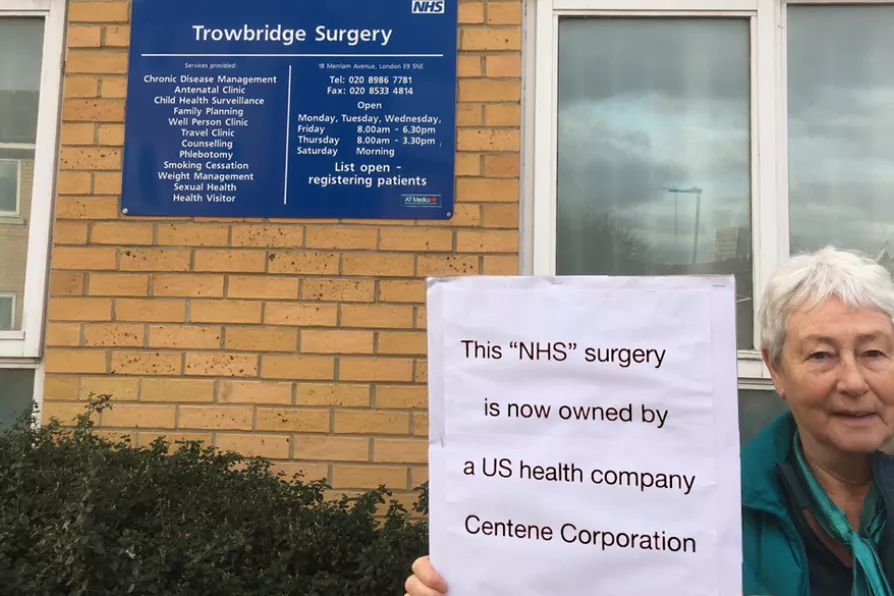Olive oil remains a vital foundation of food, agriculture and society, storing power in the bonds of solidarity. Though Palestinians are under attack, they continue to press forward write ROX MIDDLETON, LIAM SHAW and MIRIAM GAUNTLETT

 YOU HAVE BEEN WARNED: Keep Our NHS Public campaigner and executive committee member Carol Ackroyd protests the Centene Corporation take over outside Trowbridge Surgery in Hackney
[Keep Our NHS Public]
YOU HAVE BEEN WARNED: Keep Our NHS Public campaigner and executive committee member Carol Ackroyd protests the Centene Corporation take over outside Trowbridge Surgery in Hackney
[Keep Our NHS Public] CENTENE, a US health corporation expanding throughout the NHS, has been repeatedly fined in its native United States for medical and financial failures.
Missouri-based Centene is enthusiastic about Britain, which it says is one of its two overseas locations. It is so keen it is buying key British companies and key British personnel.
Centene is very big in the United States — it is the 42nd-biggest firm in the US, according to the Fortune 500 list of US firms.

Labour’s new Treasury unit will ‘challenge unnecessary regulation’ by forcing nominally independent bodies like Ofwat to bend to business demands — exactly what Iain Anderson’s corporate clients wanted, writes SOLOMON HUGHES

There have been penalties for those who looked the other way when Epstein was convicted of child sex offences and decided to maintain relationships with the financier — but not for the British ambassador to Washington, reveals SOLOMON HUGHES

US General Stanley McChrystal has been invited to advise on creating a ‘team of teams’ for healthcare transformation. His credentials? He previously ran interrogation bases where Iraqis were stripped naked and beaten, reports SOLOMON HUGHES
















